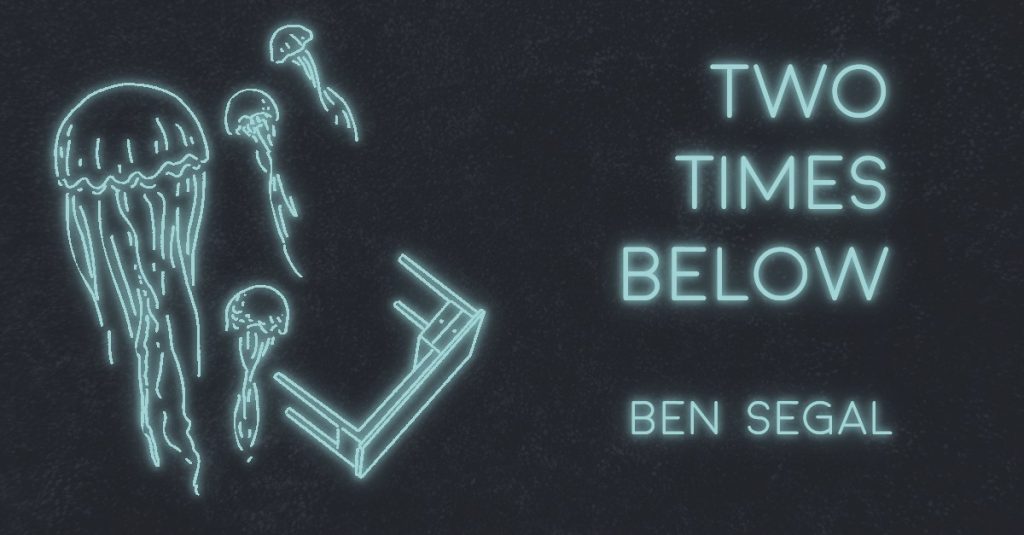For once I was leaving well enough alone. The rain was harder than average. My sweater was coming apart at the sleeves. This was when I was officed by the Pacific and could walk in the waves during lunch. This was when my colleagues wondered at the afternoon damp at my ankles, at the slight briny scent that came from below my desk.
I placed a huge jellyfish over my head. It slipped on wet against my scalp and face and dangled plant-like to the edge of my collarbone.
I thought of words like tendril and vine. My bald patch soothed beneath the creature’s moist insides.
When I walked back to work, I was thoroughly soaked from the rain. The jellyfish gave everything a cloudy look. The world appeared viscous, smudged. My office was cold, as always, so I wrapped my body in the patterned wool blanket I stored in the filing cabinet and poked my hands out to reach my keyboard. There were reports to complete.
No one saw or spoke to me. I drafted a report and then another. The sun sank and an electric light turned on automatically above my head. The jellyfish had started to flow downward. It was thinning at the top and gathering mass at its lower points, like glass sped up a thousand times. I removed it with care so it flipped inside-out but remained intact. Then I took the inverted invertebrate and left it spilling out of the small wicker basket in which our snacks were stocked.
I drafted and sent another report. I drove an old car the long way home.
*
In my troubling younger years, I’d have danced jelly-headed in the reception area. I’d have sung loudly and flung its body at a slim and gym-toned client. Mine was a history of soft assaults and early dismissals.
*
These days the seas are overfilled with jellyfish. They breed well in the warmer water and have started to crowd out most other kinds of life. A whale stores the carbon of a whole small forest, I heard, but a jellyfish? They bob and refract the light. They mass on the water surface and are nearly as wet – an uncanny colony, a shifting almost-film.
The one I grabbed discorporated over Cheezit bags.
The work I did was likewise vaguely disgusting. It was difficult to discern its purpose. What I mean has something to do with rot and discarding.
*
Two years later, I removed myself to a prairie suburb. The city it helped ring was industrial, fading. I took on another job there, a mortgage. I purchased a membership to the community pool and wore no creatures. Kids in the drought year danced in terrible parody. My soft spot for the grotesque had firmed into a tight knot of self-contempt. I held a broken stick in their direction. Another couple of years passed far from waves and salted pleats. I carved divining rods on weekends.
I had learned, that is, to look for enchantment in folkways and ridiculed rituals. I had abandoned rupture, or at least novelty. I followed my gnarled rods over gentle glacier-carved hills that were dewy when the sun rose. I used phrases like “dewy when the sun rose” and stalked between the moraines with my old wool blanket around my shoulders.
This was not better or worse than any other choice, for me or in general, except the obvious advantages of exercise and fresh air. My legs grew strong and I smelled often of sweat. A neighbor built a house of concentric circles with rooves of wavering heights. Another neighbor died and was replaced by his sullen adult child. My job permitted me to work remotely, and I performed a task that remotely resembled work.
*
I carved a rod and followed it to water.
Miracles are easy in a region of lakes.
Freshwater jellyfish are tiny and translucent and beautiful. I scooped them with my hand from the pond bottom, lay down half in the water, and released them over my closed eyes. I felt them wash and trail against me. Some died, no doubt, from the trauma. I am so often both ambivalent and wet.

